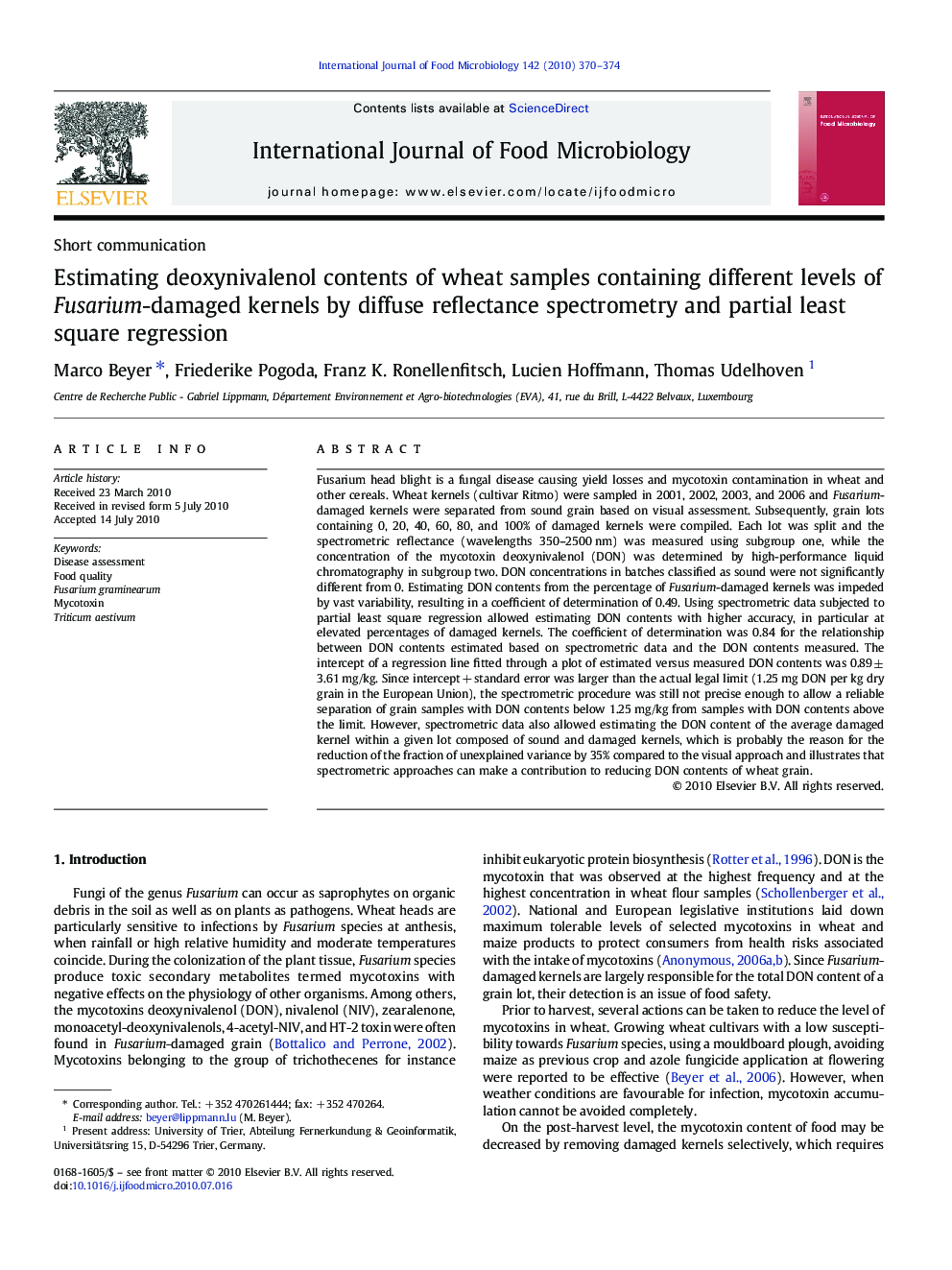| کد مقاله | کد نشریه | سال انتشار | مقاله انگلیسی | نسخه تمام متن |
|---|---|---|---|---|
| 4368323 | 1616681 | 2010 | 5 صفحه PDF | دانلود رایگان |

Fusarium head blight is a fungal disease causing yield losses and mycotoxin contamination in wheat and other cereals. Wheat kernels (cultivar Ritmo) were sampled in 2001, 2002, 2003, and 2006 and Fusarium-damaged kernels were separated from sound grain based on visual assessment. Subsequently, grain lots containing 0, 20, 40, 60, 80, and 100% of damaged kernels were compiled. Each lot was split and the spectrometric reflectance (wavelengths 350–2500 nm) was measured using subgroup one, while the concentration of the mycotoxin deoxynivalenol (DON) was determined by high-performance liquid chromatography in subgroup two. DON concentrations in batches classified as sound were not significantly different from 0. Estimating DON contents from the percentage of Fusarium-damaged kernels was impeded by vast variability, resulting in a coefficient of determination of 0.49. Using spectrometric data subjected to partial least square regression allowed estimating DON contents with higher accuracy, in particular at elevated percentages of damaged kernels. The coefficient of determination was 0.84 for the relationship between DON contents estimated based on spectrometric data and the DON contents measured. The intercept of a regression line fitted through a plot of estimated versus measured DON contents was 0.89 ± 3.61 mg/kg. Since intercept + standard error was larger than the actual legal limit (1.25 mg DON per kg dry grain in the European Union), the spectrometric procedure was still not precise enough to allow a reliable separation of grain samples with DON contents below 1.25 mg/kg from samples with DON contents above the limit. However, spectrometric data also allowed estimating the DON content of the average damaged kernel within a given lot composed of sound and damaged kernels, which is probably the reason for the reduction of the fraction of unexplained variance by 35% compared to the visual approach and illustrates that spectrometric approaches can make a contribution to reducing DON contents of wheat grain.
Journal: International Journal of Food Microbiology - Volume 142, Issue 3, 1 September 2010, Pages 370–374